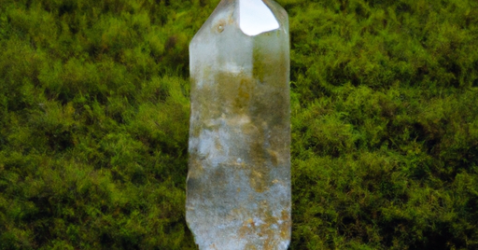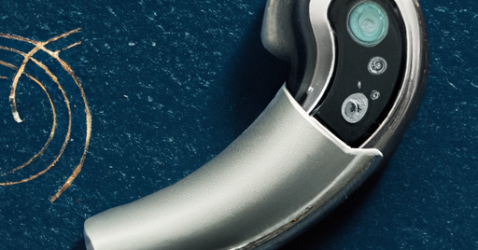Eco-Friendly Self-Care: Tips For The Environmentally Conscious
In this article, we’ll explore some practical self-care tips for those who are passionate about protecting the environment. From simple yet effective ways to reduce waste in your daily routine to incorporating sustainable products into your skincare and wellness practices, these eco-friendly tips will not only benefit you but also contribute to a healthier planet. So, if you’re ready to prioritize self-care while being conscious of your environmental impact, keep reading for some easy and inspiring ideas.
Choosing Sustainable Personal Care Products
When it comes to choosing personal care products, opting for sustainable options is not only good for the environment but also for your own well-being. By selecting products that are natural and organic, you can minimize the negative impact on both your body and the planet. Look for ingredients that are derived from plants and stay away from synthetic chemicals and harmful additives. Many natural products are sourced sustainably and produced using eco-friendly methods, ensuring that you are making a positive choice for the environment while taking care of yourself.
Avoid Harmful Chemicals and Microbeads
One of the key aspects of choosing sustainable personal care products is avoiding harmful chemicals and microbeads. Many conventional products contain ingredients that are harmful to both your health and the environment. Chemicals like parabens, phthalates, and sulfates can have negative effects on your skin and body over time. Additionally, microbeads, which are tiny particles commonly found in exfoliating products, are a major source of water pollution and harm marine life. By opting for products that are free from these harmful substances, you can protect yourself and the ecosystem.
Support Cruelty-Free Brands
When choosing personal care products, it’s important to support brands that are cruelty-free. This means that they do not test their products on animals. Animal testing is not only inhumane but also unnecessary, as there are plenty of alternative methods available to ensure the safety and efficacy of products. By purchasing from cruelty-free brands, you can contribute to the movement towards ending animal testing in the beauty industry. Look for certifications such as the Leaping Bunny or PETA’s cruelty-free logo to ensure that your chosen brands meet ethical standards.
Reduce and Reuse Packaging
Packaging waste is a significant problem in the personal care industry. To minimize your environmental impact, consider reducing and reusing product packaging. Opt for refillable containers whenever possible. Many sustainable brands offer refills for their products, allowing you to purchase less packaging overall. Another way to reduce packaging waste is to choose products with minimal packaging. This means selecting options that come in simple, recyclable packaging that can be easily disposed of or repurposed. Additionally, investing in sustainable packaging alternatives, such as biodegradable or compostable options, can further reduce your carbon footprint.
Conserve Water
Conserving water is an essential aspect of sustainable self-care. By taking shorter showers, you can significantly reduce your water consumption and contribute to water conservation efforts. Aim to keep your showers to around five minutes or less. Installing water-saving fixtures, such as low-flow showerheads and faucets, can also make a big difference in your water usage. These fixtures regulate water flow without compromising the quality of your shower experience. Additionally, consider reusing water when possible. For example, you can collect excess shower water in buckets to water plants or use it for household cleaning purposes.
Energy-Efficient Self-Care Practices
Incorporating energy-efficient practices into your self-care routine can help minimize your environmental impact. Start by switching to LED bulbs in your bathroom and throughout your home. LED bulbs are more energy-efficient and last longer than traditional incandescent bulbs, reducing both energy consumption and waste. Another simple step is to turn off electronics when not in use. Many personal care devices, such as hair dryers or electric toothbrushes, continue to draw power even when not actively being used. By making a conscious effort to turn them off and unplug them, you can save energy and reduce your carbon footprint. Lastly, make use of natural light whenever possible. Open your blinds or curtains during the day to take advantage of sunlight for your grooming routines, ultimately reducing the need for artificial lighting.
Mindful Consumption of Beauty Tools
When it comes to beauty tools, practicing mindful consumption can have a positive impact on the environment. Instead of purchasing cheap, disposable tools that contribute to waste, invest in high-quality, durable tools that will last. Choose tools made from sustainable materials, such as bamboo or recycled plastic, that are both eco-friendly and long-lasting. Properly cleaning and maintaining your beauty tools is also important to extend their lifespan. Regularly wash brushes and sponges to prevent product buildup and bacteria growth. Additionally, consider multi-functional tools that serve multiple purposes. This not only reduces the number of tools you need but also saves resources and reduces waste.
DIY and Natural Remedies
Exploring DIY and natural remedies is a great way to practice sustainable self-care. By making your own beauty products, you have full control over the ingredients used, ensuring that they are natural and safe for both you and the environment. There are countless recipes available online for homemade skincare and haircare products, using ingredients you may already have in your kitchen pantry. Additionally, natural remedies can be a wonderful alternative to conventional over-the-counter medications for common ailments. For example, essential oils, herbal teas, and soothing herbal baths can provide relief for stress, headaches, and minor skin irritations.
Eco-Friendly Bath and Shower Habits
To make your bath and shower routines more eco-friendly, consider using accessories that are designed with sustainability in mind. Opt for bath accessories made from organic or sustainable materials, such as bamboo or natural loofahs. These alternatives are biodegradable and do not contribute to plastic waste. When it comes to shower products, choose options that are biodegradable and free from harmful chemicals. This ensures that the products you use will not have a negative impact on the environment when they are washed down the drain. Lastly, avoid excessive use of hot water, as heating water consumes energy. Taking lukewarm showers instead of hot showers can help reduce your carbon footprint.
Sustainable Skincare and Makeup Packaging
When selecting skincare and makeup products, consider the packaging they come in. Look for brands that prioritize recyclable packaging. Recycling helps reduce waste and conserve resources by giving materials a second life. Additionally, support brands with sustainable packaging initiatives. Some brands have made commitments to using recycled materials, reducing overall packaging, or even zero-waste packaging solutions. By purchasing from these brands, you are supporting their efforts to minimize their environmental impact. Opting for minimalist packaging designs can also reduce waste and make a positive contribution to sustainability.
Green Hair Care Practices
Hair care routines present an opportunity to incorporate green practices into your self-care regimen. Start by choosing natural and biodegradable shampoo and conditioner options. Many conventional hair care products contain harsh chemicals that can harm both your hair and the environment. By opting for natural alternatives, you can minimize the negative impact on both. Another way to be more sustainable in your hair care routine is to reduce the time you spend in the shower. Cut back on shower time when washing your hair by using efficient techniques such as shampooing only the roots or using dry shampoo on non-wash days. Lastly, try to minimize the use of heat styling tools, as they consume energy and can damage your hair in the long run. Embrace your natural hair texture and explore heatless styling options to reduce your reliance on heat tools.
Supporting Sustainable Beauty Brands
When it comes to supporting sustainable beauty brands, doing your research is key. Look for ethical beauty brands that prioritize sustainable practices and ingredients. These brands often have strong missions and values focused on reducing their environmental impact. Support local and independent businesses whenever possible, as they often have a smaller carbon footprint. By purchasing from these businesses, you are contributing to local economies and reducing the need for transportation and shipping. Additionally, consider eco-friendly certifications, such as USDA Organic or Fairtrade, when choosing beauty products. These certifications ensure that the products meet specific standards for sustainability and ethics. By supporting sustainable beauty brands, you are making a conscious choice to contribute to a greener, more ethical industry.
In conclusion, choosing sustainable personal care products and adopting eco-friendly self-care practices can have a positive impact on both the health of the planet and your own wellbeing. By looking for natural and organic ingredients, avoiding harmful chemicals, supporting cruelty-free brands, reducing packaging waste, conserving water and energy, practicing mindful consumption, exploring DIY and natural remedies, using eco-friendly bath and shower habits, considering sustainable skincare and makeup packaging, embracing green hair care practices, and supporting sustainable beauty brands, you can make a difference in preserving our environment while taking care of yourself. By making these small changes in your daily routine, you contribute to a more sustainable future and inspire others to do the same. Start today, and enjoy a guilt-free, eco-friendly self-care experience!

















